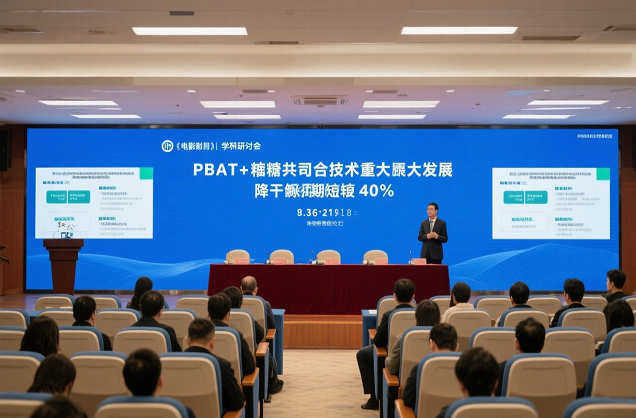The 3 major developments in compostable packaging in light of the EU's SUP ban
EU SUP Ban Update: 2025 New Regulations Explained
In June 2024, the European Union officially adopted the revision of the SUP (single-use plastics) ban, and the new regulations will be fully implemented on January 1, 2025. Compared to the 2019 version, there are three key changes in this update:
Expanding the scope of the plastic ban: new categories such as plastic-coated paper products and ultra-thin plastic bags (<15 micron) have been added
Upgraded certification requirements: compostable packaging must be certified for industrial composting by EN13432 or for home composting by OK Compost HOME
Heavier penalties: maximum fines for non-compliant companies have risen to 4% of their annual turnover ( Previously 2%)

Direction 1: Material innovation - from PLA to third-generation bio-based materials
Current pain points
Traditional PLA materials: degradation requires industrial composting conditions (58-70°C), almost no decomposition in the home environment
PBAT blends: cost is 35-50% higher than ordinary plastics
Breakthrough solutions
PHA-based composites (polyhydroxy fatty acid ester)
Representative company: Novamont, Denmark
Advantage: seawater/soil/home composting degradation in all scenarios
Latest progress: mass production cost down to €3.2/kg in 2024
Nano-cellulose reinforcing material
Technology highlight: tensile strength up to 50MPa (close to HDPE)
Application case: Nestle coffee capsule (full switchover in 2025)
Table: Comparison of Mainstream Bio-based Materials in 2024 Comparison of material properties
Material type Degradation conditions Cost (€/kg) Heat distortion temperature
PLA Industrial composting 2.8 55°C
PHA Home composting 3.2 120°C
Nanocellulose Natural degradation 4.1 95°C

Direction 2: Certification system reconstruction - from single standard to scenario-based certification
Certification challenges under the new regulation
Extended test cycle: EN13432 certification now requires 180 days of degradation testing (formerly 90 days)
New testing items: microplastic residues become mandatory (limit value <0.1%)
Corporate response strategy
Dual certification layout (industrial +) (home composting)
Success story: Germany's Bio4Pack's food containers also passed:
OK Compost INDUSTRIAL
TÜV Austria HOME standard
Blockchain traceability:
Spanish brand Sphere develops a digital passport for packaging
Scanning to see the whole lifecycle of raw material sources, degradation conditions and other data

Direction 3: Business model innovation - from product to service
Subscription-based composting solution
France Loop model: pay €15/month to enjoy compostable packaging recycling service
User data: 83% repurchase rate, 40% increase in customer unit price
Carbon credit trading system
Each ton of compostable packaging generates 0.8 carbon credits
Current market price: €85 per Points (ICE data)
Case study: Unilever offsets 12% of transportation emissions with packaging carbon points.
Opportunities for Chinese companies to go overseas
Three Steps to EU Market Access
Certification Preparation (6-8 months):
Mandatory: EN13432 + REACH SVHC testing
Recommendation: Apply for EU Ecolabel
Channel Building:
Focus on German Packaging Distributors (e.g. Pacovis)
E-commerce Platforms: Amazon's "Climate Pledge Friendly" Zone
Compliance Labeling New requirement: must label "industrial composting" or "home composting" Classification guidelines
Prohibited terminology: vague expressions such as "100% biodegradable"

Trend forecasts for 2025
Material side: PHA production capacity to grow by 300% (mainly due to investment from Chinese companies)
Policy side: UK proposes to introduce "SUP 2.0" bill that is tougher than the EU's
Consumer side: compostable packaging premiums acceptance to be 25% (compared to 12% in 2023) (12% by 2023)
Suggestions for action
For manufacturers
Start EN13432 certification immediately (average queue currently 4 months)
Develop "EU customized" product line (minimum order quantity of 20 tons recommended)
For cross-border e-commerce
Focus on:
Home composting-certified products (searches up 210% year-on-year)
Carbon Footprint-labeled products (37% higher conversion rate)
Risk aversion:
Avoid off-label terms such as "biodegradable"
Ensure that Individual test reports for each SKU
 Significant progress in PBAT/s
Significant progress in PBAT/s
 PLA/PBAT composite film degrad
PLA/PBAT composite film degrad
 A New Choice for Takeaway Pack
A New Choice for Takeaway Pack
 Significant progress in PBAT+s
Significant progress in PBAT+s
CONTACT
Add: Room 4006, No.1 Helong Yiheng Road, Baiyun District, Guangzhou City
Tel: +8613450255948
Wechat : +86-13450255948
Fax: +86-13450255948
E-mail: 13450255948@163.com








